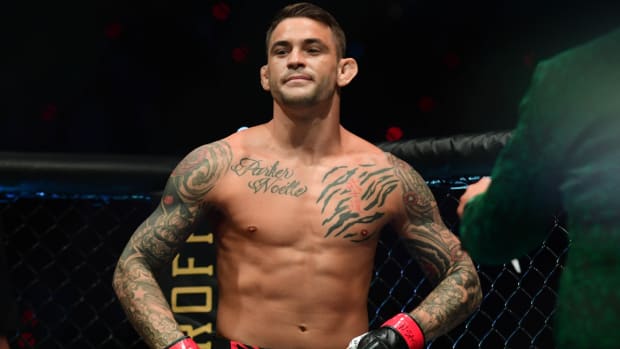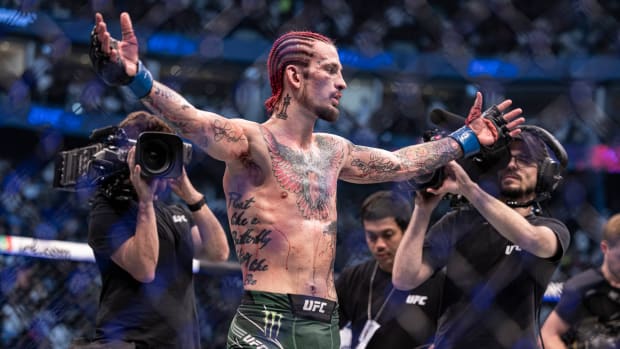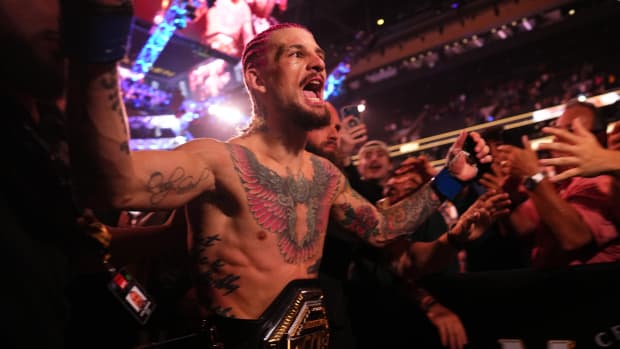Almost synonymous with MMA, the UFC aims to draw fans abroad
They say only a few industries thrive in lean economic times. Professional fighting, like alcohol, has typically done just fine. Whether you chalk that up to the simple need for distraction or you think it says something darker about the human soul, the Ultimate Fighting Championship doesn't care. It simply hopes the maxim holds true.
With competitors either struggling or folding, the UFC is thriving.
"I think we're starting to get to a level now where you've probably heard of 'ultimate fighting,'" UFC President Dana White said. "You've heard of it at some point, and the UFC is the brand."
While it's true most people have at least heard of the sport and its preeminent organization, it's also true most of them have also already made up their minds about it. By now, either they're fans or they're not. Perhaps this is why ratings for MMA-themed shows like Spike TV's The Ultimate Fighter have mostly stagnated, as well as why pay-per-view buys have reportedly leveled off lately, though White denies the latter assertion.
"We don't make that stuff public, so people assume," he said. "Trust me, the UFC business is thriving and growing. If buys were starting to taper off, I wouldn't be as aggressive about going global as I am right now. I'd say we should stay home and work on our business here before we start worrying about what's going on in the rest of the world."
While the UFC's expansion has thus far been limited to the UK, those efforts have proven successful.
In the last two years the organization has held six events in the British Isles, selling out every one. UFC 93, in Dublin, Ireland, Jan. 17 sold out in approximately two weeks, filling the 10,000-seat O2 Arena. It's this kind of success that's fueling the UFC's desire to break into European markets, such as Germany, as well as to capitalize on the popularity of MMA in the Philippines, where White claims the UFC is already accepted as a mainstream sport.
"We believe that we're ready to go global and the time is now," White said. "We've now built an infrastructure here, and with Lorenzo [Fertitta] on board it helps, but we're ready to expand into the rest of the world."
But the real future for MMA and the UFC may not simply lie in capturing new, global audiences, but in capturing younger ones. The UFC enjoys uncommon popularity among young men, particularly the coveted 18-34-year-old crowd. The boxing die hards and the old-guard sports editors may be opponents of the sport, but consumer research indicates that the UFC draws the youngest fan base of any major sport in America.
Not only does that translate into fan support that will last into future generations, it also adds up to a growing pool of fighters to choose from, as young athletes begin choosing MMA over boxing or other sports. It's a phenomenon White said the UFC is already noticing both in the U.S. and abroad.
"There probably isn't a place in the world you could name where I couldn't get a fighter from," he said. "As more money gets into the sport and it becomes more popular, you're going to see more guys becoming mixed martial artists."
The question then becomes, where will they all go? As much as people love comparing MMA to boxing, the better parallel might be pro wrestling. The UFC's business model is in many ways similar to that of the WWE, a comparison White doesn't refute.
"I think that's pretty accurate," White said. "We knew when we came in, we completely changed the fight industry and the way everything was done. We have a big, powerful brand, much like the WWE. I think that's the reason we get compared to the WWE, is because of that brand. And I think the brand, plus the star, equals success for everybody."






